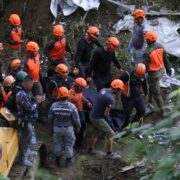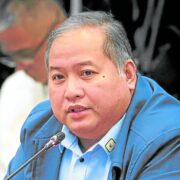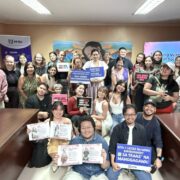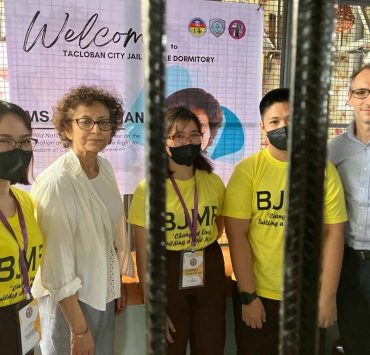For this working mom, fitness is part of ‘who we are and how we live’
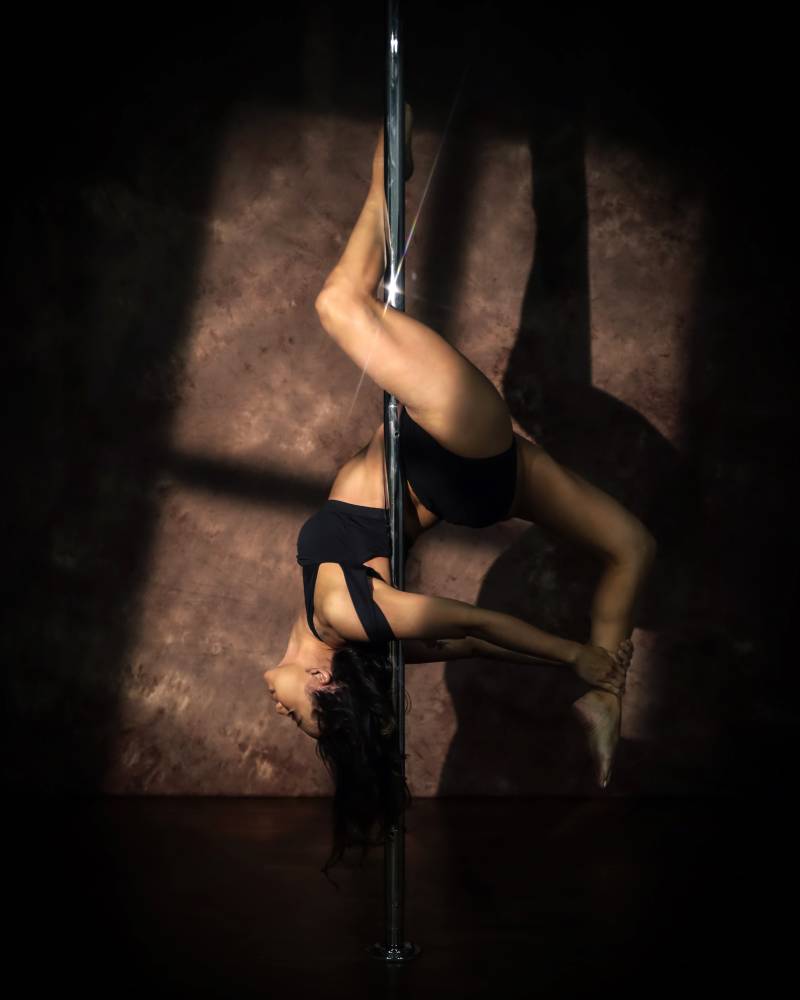
Tin Coqueiro started the year with a “Robocop” leg. She had surgery just after New Year for a knee injury she sustained while training for the Spartan Race in October. But that doesn’t necessarily mean hitting a complete pause in her fitness routine.
“I see it as an opportunity to shift my focus to the other aspects of my fitness journey,” said the vice president for retail development of Rockwell Land Corp. (By the time this article comes out, she will be officially brace-free. But her rehab is expected to continue until April.)
Her job entails overseeing the planning, leasing and operations of the retail developments of Rockwell, but Coqueiro usually devotes eight to 10 hours per week to training and working out. While she rests her knee and lower body for now, however, she’s focusing on strengthening her upper body and core.
Normally, she packs pole dancing, free diving and obstacle course racing (OCR) into her weekends, while taking rowing classes and doing strength training workouts on weekdays.
“I love them because they’re the kind of sports that push me to my limits. There’s always progression and you will never be stuck on the same level,” she told Lifestyle, adding that they don’t even feel like workouts.
Empowering
The 43-year-old mom of two started pole dancing in 2017 after randomly seeing a YouTube video of a girl doing it. Amazed by the pole dancer’s strength and grace, she decided to check for a local school that offers classes and found Polecats Manila. She signed up for a class and has been pole dancing ever since.
“It’s a very empowering sport,” she said. “I love it because you get to improve so many aspects of yourself physically and mentally. It’s the kind of sport that not just improves your strength, but also your flexibility, endurance, musicality, grace and, more importantly, it improves your relationship with yourself and your body.”
“There are moves—or pole tricks as we call them—or sequences that we work on per session. Sometimes we nail them, sometimes we don’t. But there’s no such thing as ‘I can’t do it.’ We just keep working on them until one day, we surprise ourselves. That’s when self-acceptance happens and we respect what our bodies can do, and, consequently, self-confidence improves.”
Late last year, she got into free diving and OCR. Being a water baby who grew up swimming and scuba diving and surfing when she was younger, she naturally got into free diving, as well.
But OCR came as a surprise, she said, as never having imagined herself getting into the sport before.
Coqueiro’s interest was piqued after seeing some of her pole friends join the Spartan Race.
“I think if it weren’t for my upper body strength that I developed from pole dancing, I wouldn’t even consider it,” she said. “I still don’t consider it to be my sport just yet, because I haven’t completed an actual race. But the amount of strength and endurance it requires is no joke, and training is usually three hours long per session.”
It can also get intimidating training alongside Marines, she added.
Food and training choices
In the future, Coqueiro said she’d like to get into padel and pickleball as well, which can be fun to play with friends and prove to be good cardio workouts—a deviation from her mostly strength-based sports.
Coqueiro got seriously into fitness when she decided to go competitive. She worked on improving her strength and endurance, and signed up for a nutrition and fitness program called YDD (Your Daily Dose by Paolo and Chow Cabalfin).
“That’s where I really understood how to eat properly and the impact of food on your body,” she said. Fitness for her is not just about doing sports or working out. “A big part of staying fit is eating healthy. And when I say healthy, it doesn’t mean I go on a diet or I only eat vegetables. It means I’m more conscious of the food I eat and I focus on eating more whole foods that give me clean energy for all my training sessions and limit eating ‘empty calories’ (unhealthy and processed foods) that will have no positive contribution to my body.”
Through the YDD program, she started caring about the food she ate and making efficient choices to maximize her training sessions. “I also got a fitness coach to train me based on my goals,” she shared, adding that while she still hates going to the gym, she now sees it as a necessity for improving her performance and getting better at her sports.
“I see health and fitness as a part of who we are and how we live,” and not just for people who are already athletic and disciplined, she said.
“It definitely requires a certain mindset, but it’s also realizing how much they impact our lives today and tomorrow, especially as we grow older. It’s when we truly embrace health and fitness, and incorporate them in our daily lives, that we become happier because we’re able to move better, think better and just live better.”




